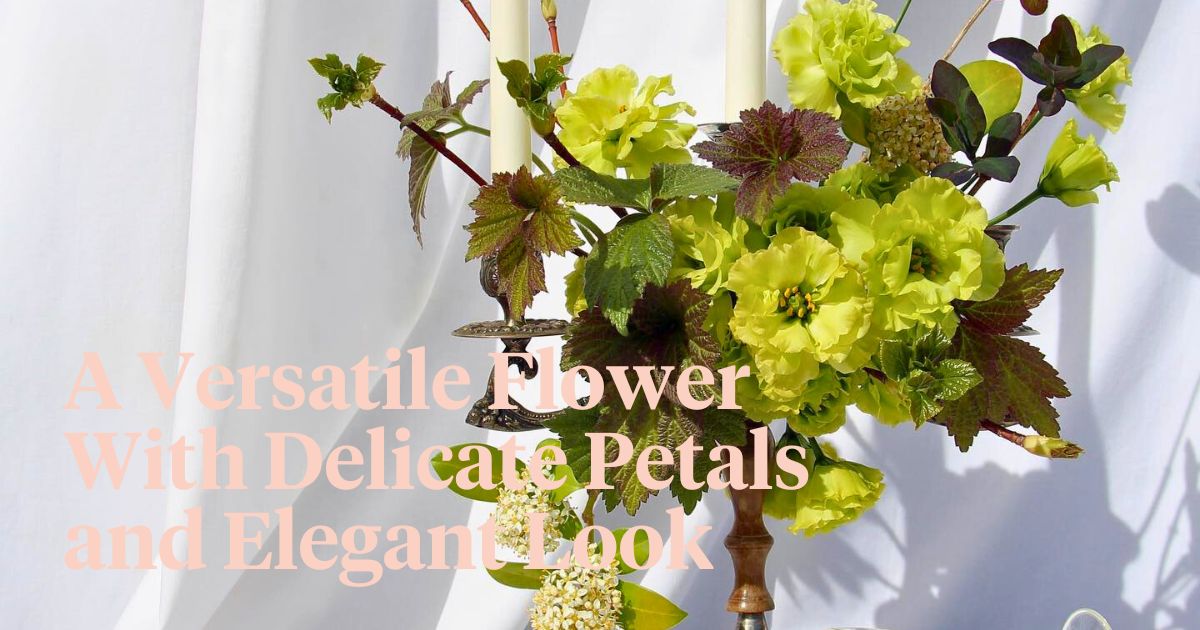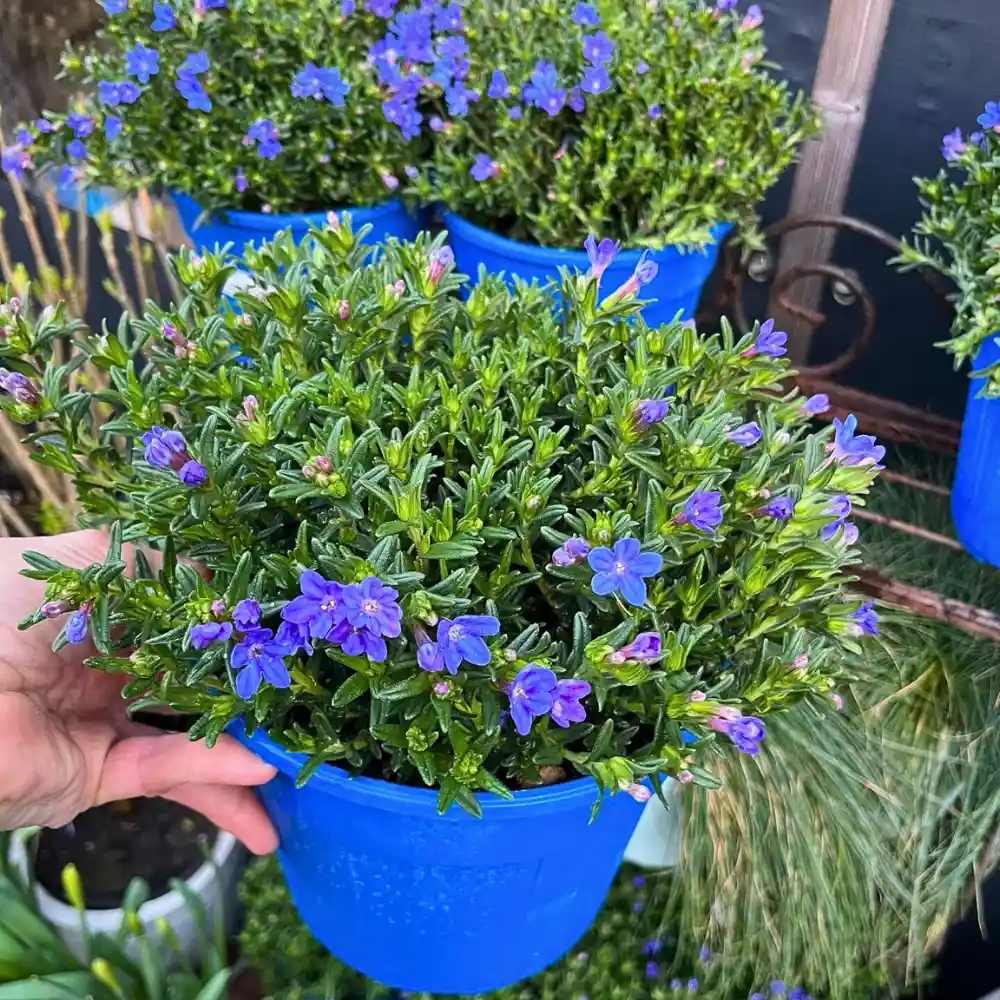For those who are passionate about flower arranging and design, the Lisianthus flower is a true gem to behold. Its delicate petals and elegant look just make it a must-have for any floral enthusiast.
Also known as Prairie Gentian, Texas Bluebell, or Tulip Gentian, or by its botanical name Eustoma, Lisianthus flowers possess an alluring charm coupled with their versatile nature. It's no wonder they continue to captivate the hearts of many across the world.
The Lisianthus Flower in Arrangements and Designs
The Lisianthus flower is a popular choice for flower arrangements and designs, thanks to its elegance and charm. As cut flowers, they come in two forms: single-flowered and double-flowered (filled).
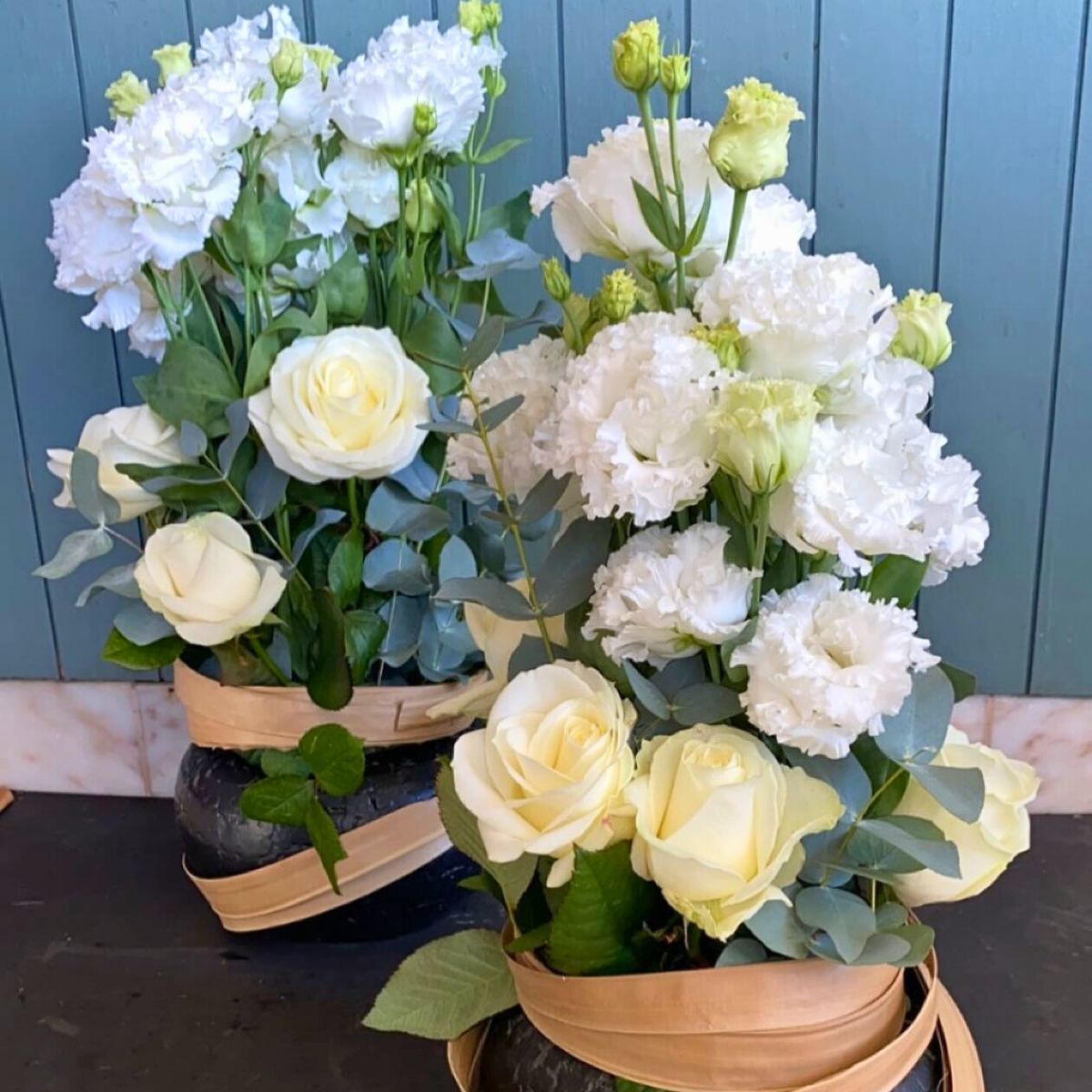
Photo by @maison_veron
The flower size can range from small to large, and from cutting to blooming, it takes about ten to twelve weeks, regardless of the time of year. New varieties with extra-large, full flowers and a record number of petals are emerging.
Additionally, more natural-looking varieties are becoming increasingly popular, making the flowers appear freshly picked. Their long-lasting blooms and elegant appearance make them a favorite among florists and DIY arrangers alike.
Highly sought after for bridal bouquets and special occasion arrangements, Lisianthus is available year-round in a wide color spectrum, including white, pink, purple, and cream. Rarer shades like yellow, apricot, rose, or red can also be found. There are also plenty of bi-color varieties with beautiful combinations of white and an additional color. The plant's foliage is characterized by its dark green, lance-shaped leaves with a slightly fleshy texture.
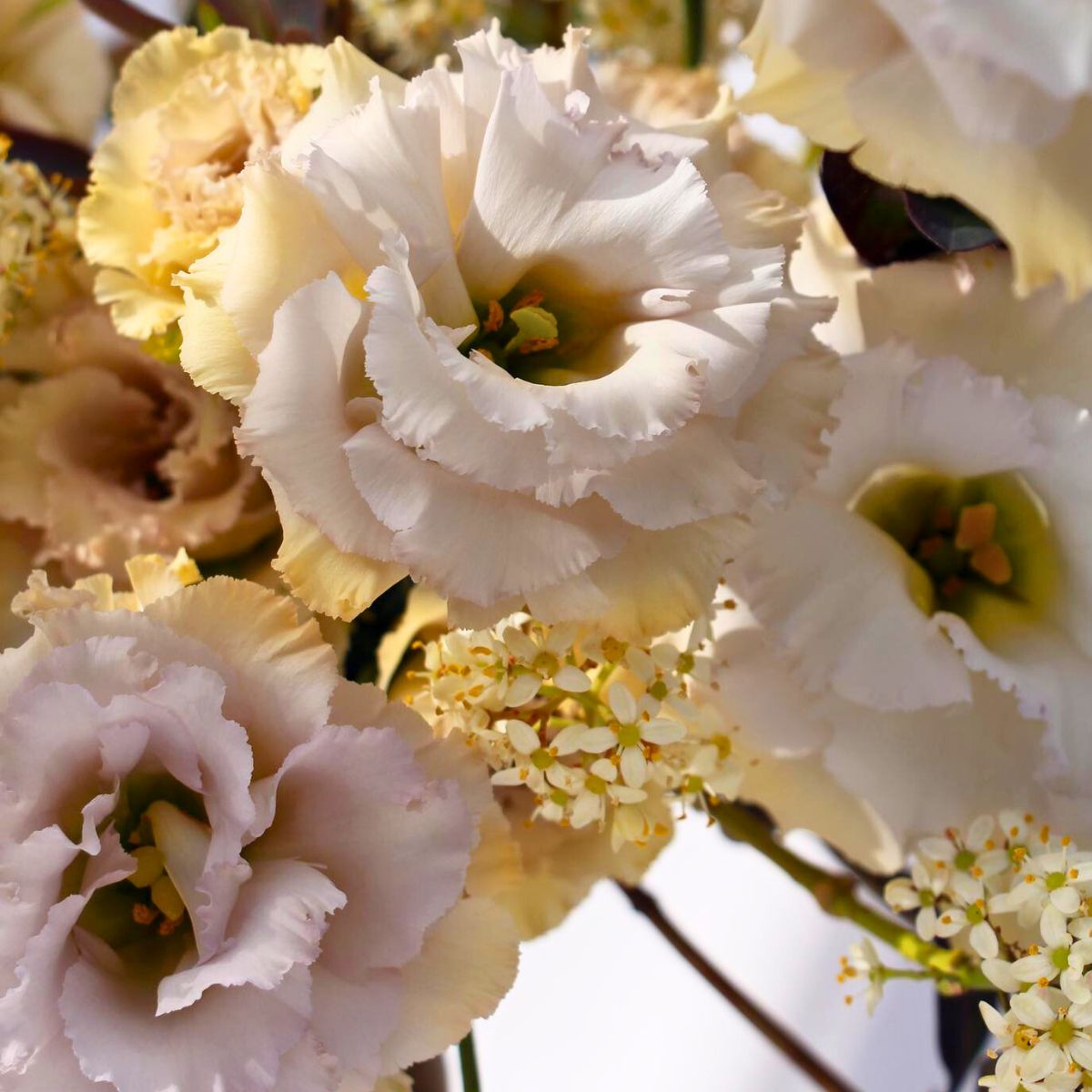
For those looking to bring a touch of sophistication to their homes or events, incorporating Lisianthus flowers into their arrangements is a surefire way to achieve this goal. Their long vase life and low fragrance make them ideal for displaying in living spaces, dining rooms, and even bedrooms.
White Lisianthus
White Lisianthus flowers, with their delicate petals, create a soft, romantic ambiance. The versatile nature of Lisianthus allows them to be combined with other flowers such as roses, hydrangeas, and lilies, creating stunning arrangements that captivate the eye.
White Lisianthus flowers hold a special place in the world of wedding florals, and for good reason. The delicate, ruffled petals of these blooms evoke a sense of purity, innocence, and romance, making them a perfect choice for creating an enchanting and elegant atmosphere.
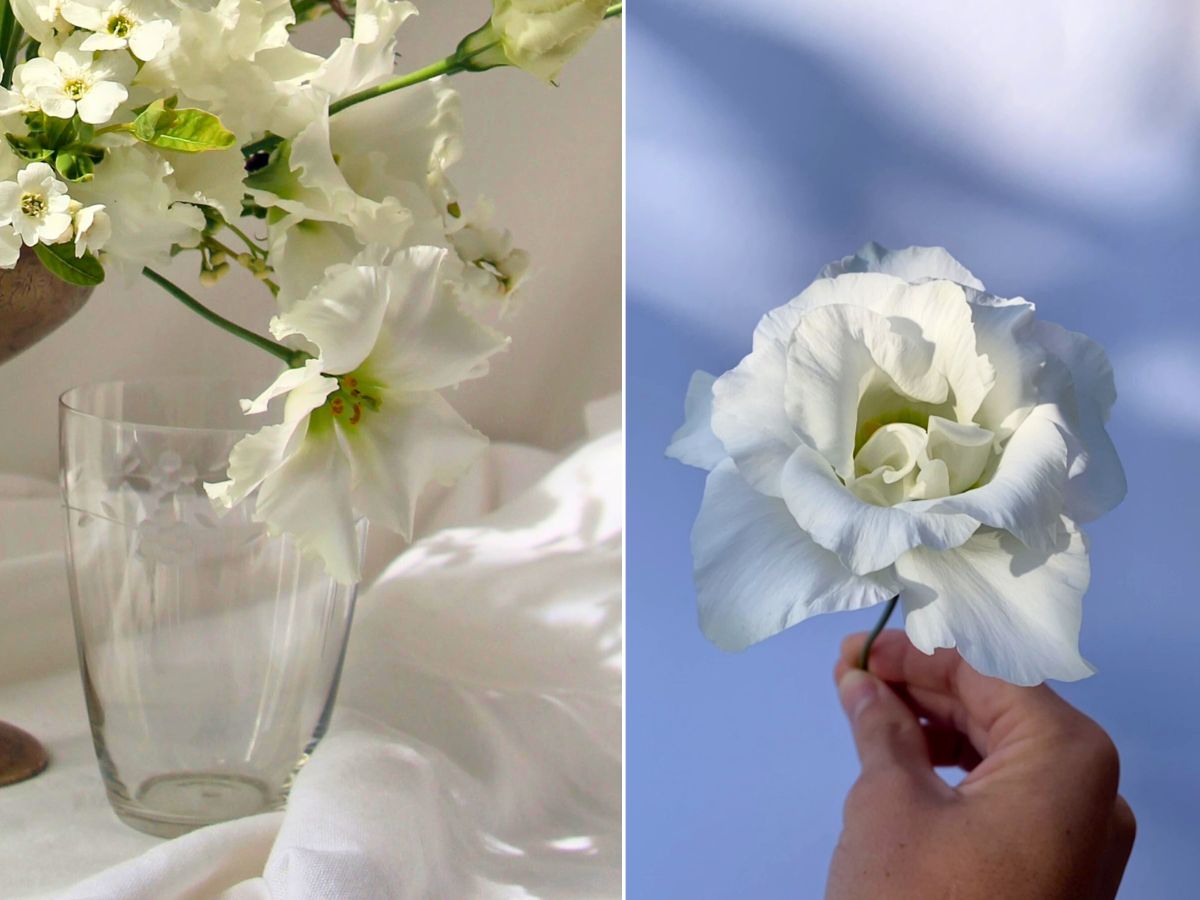
In addition to their symbolic meaning, white Lisianthus flowers are incredibly versatile, blending seamlessly with various color schemes and complementing a wide array of other blooms.
Furthermore, their long-lasting nature ensures that these flowers will remain fresh and beautiful throughout the entire wedding event, without wilting or losing their charm. As a cost-effective alternative to traditional wedding favorites like roses and peonies, white Lisianthus offers couples the opportunity to create stunning, memorable arrangements without breaking the bank.
In essence, the timeless beauty, versatility, and lasting appeal of white Lisianthus make them a quintessential choice for wedding florals that will leave a lasting impression on both the couple and their guests.
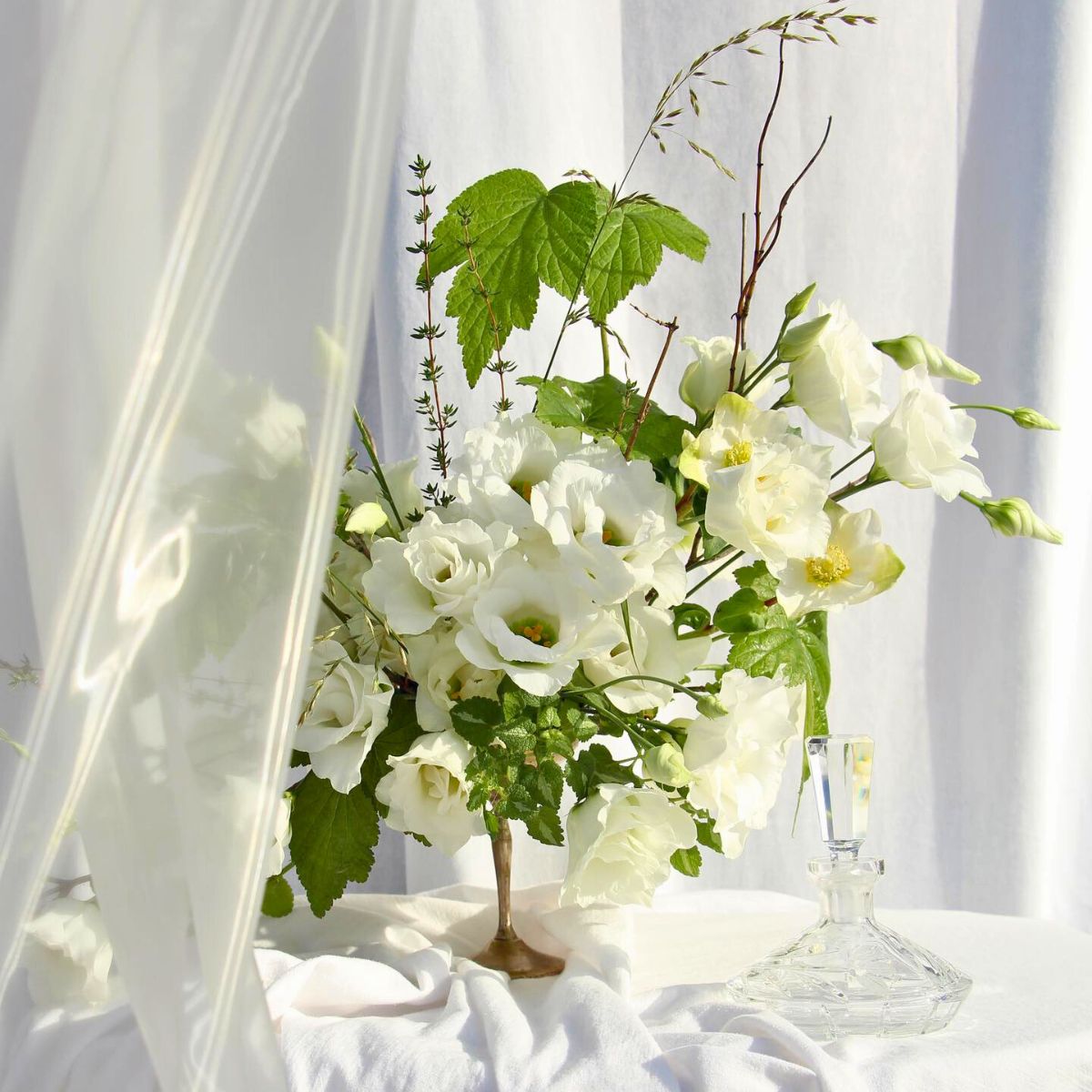
Lisianthus Origin, Appearance, and Growing Habits
Delightfully enchanting, Lisianthus flowers (Eustoma spp.) are often categorized as tender perennials or biennials, even though they are commonly grown as annuals. These blooms have their roots in the prairies and fields stretching from northern Mexico all the way up to Colorado and Nebraska, where they naturally return each year.
The stunning Lisianthus plants typically grow to a height of one to three feet, boasting large, bell-shaped flowers in shades of purple and white. The blossoms feature flaring lobes that gracefully bloom on one or more upright stems, creating an enchanting display. Although Lisianthus flowers can be somewhat challenging to grow and care for, the reward of having beautiful, long-lasting cut flowers makes the effort worthwhile.
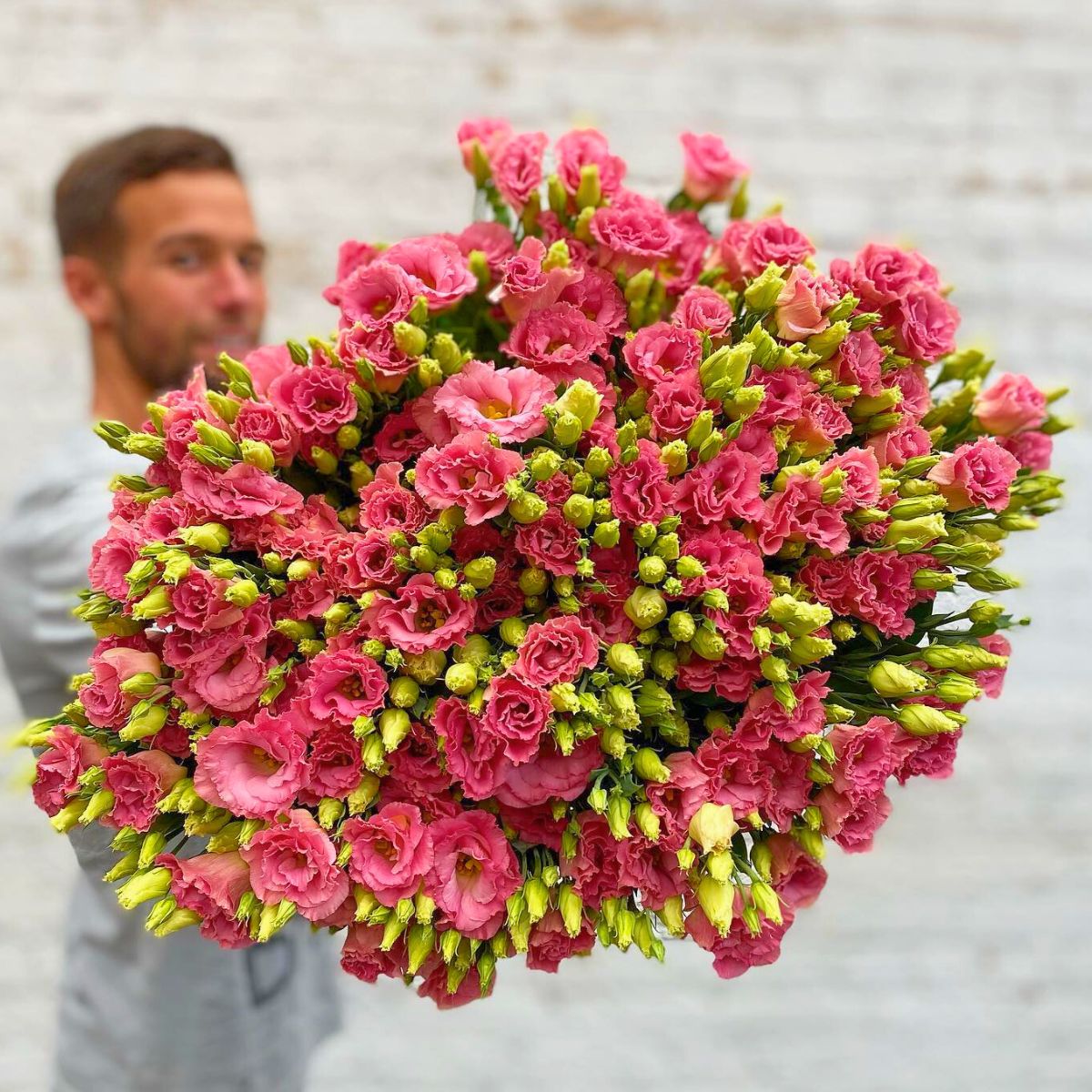
Lisianthus flowers naturally bloom in summer and fall, with their cut versions lasting for about two weeks. Depending on the regional climate, these blooms may start appearing in June or July and continue to grace gardens until September or October. To encourage more blossoms, deadheading is recommended. With their striking resemblance to roses and longer vase life, Lisianthus flowers have become a cherished favorite.
As an annual garden flower, Lisianthus planted from seeds tends to grow slowly, taking five to six months to reach flowering maturity. Most gardeners choose to plant Lisianthus from commercial nursery plants that were started from seed in greenhouses the previous fall. This approach ensures that by spring, these captivating flowers with their fluttery, layered blooms will be ready to transform gardens into a haven of beauty and elegance.
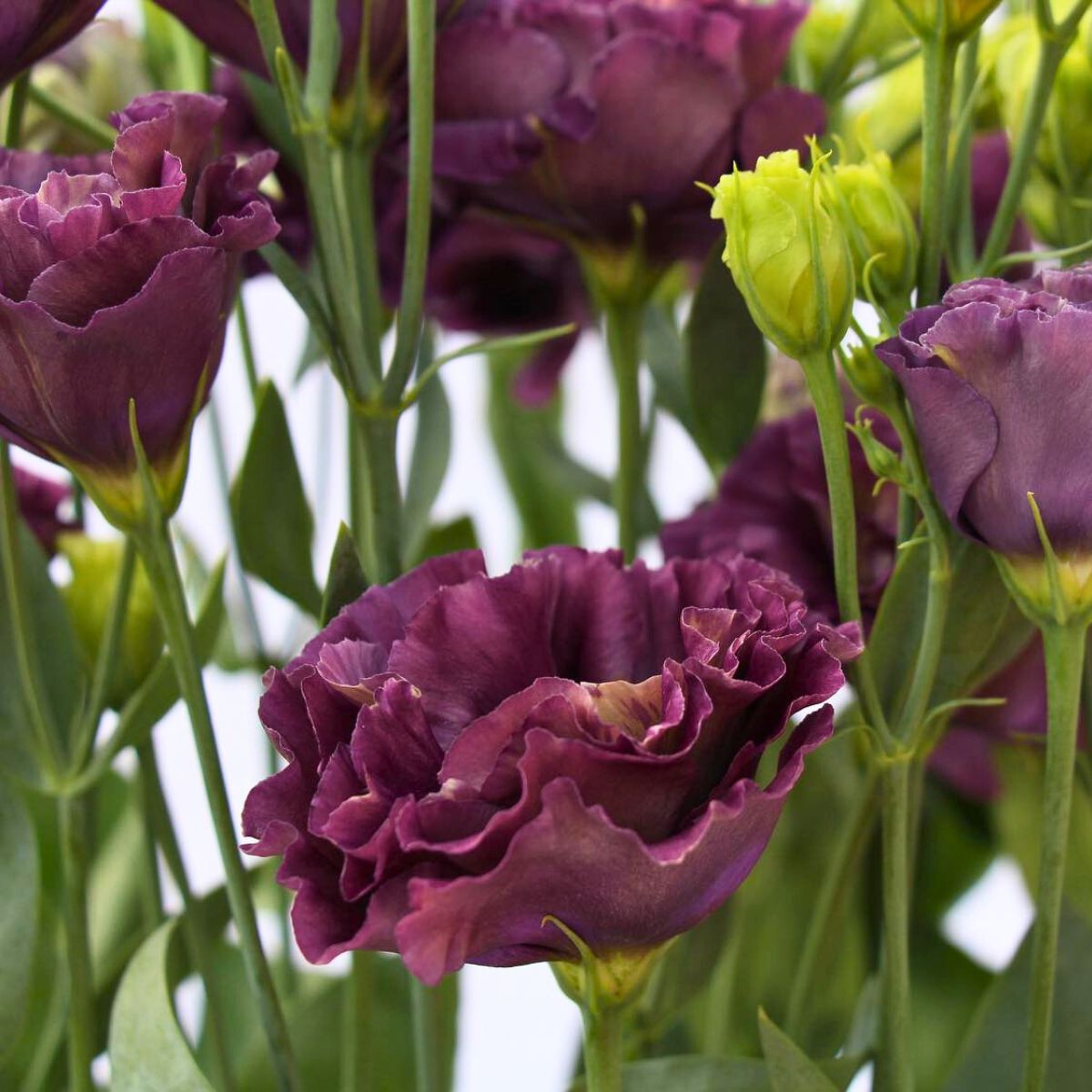
Photo by @montana_lisianthus
Caring for Lisianthus as a Cut Flower
One of the many reasons people love Lisianthus flowers is their long vase life, which can last up to two weeks with proper care. To ensure the longevity of these blooms, follow these simple tips:
- Trim the stems at a 45-degree angle, which allows for better water absorption.
- Remove any leaves that will be submerged in water, as they can cause bacterial growth and reduce the vase life of the flowers.
- Change the water in the vase every two to three days and add floral preservatives if available.
- Keep the flowers away from direct sunlight, drafts, and heat sources to prevent premature wilting.
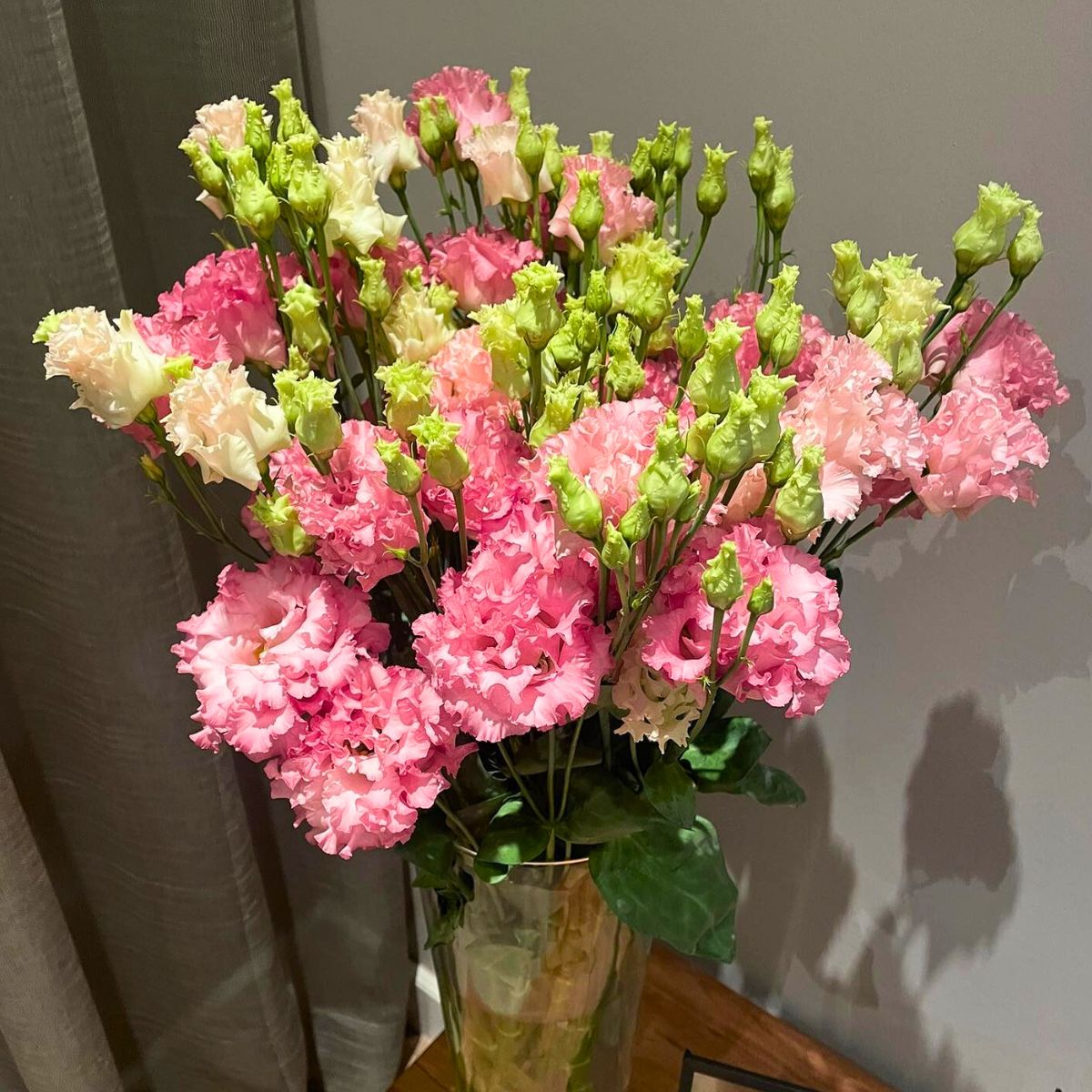
Photo by Lugt Lisianthus
By following these care tips, the beauty of the Lisianthus flowers can be enjoyed for an extended period, brightening up any space with their captivating charm.
Tips for the Care of Lisianthus Plants in the Garden
For those who wish to grow Lisianthus plants in their gardens, it's essential to understand their needs and preferences. These flowers thrive in well-draining soil with a pH between 6.0 and 6.5. They also require full sunlight for at least six hours a day. To ensure successful growth, follow these essential care tips:
- Plant Lisianthus in an area with good air circulation to minimize the risk of disease.
- Water the plants regularly, ensuring the soil remains consistently moist but not waterlogged.
- Feed the plants with a balanced, slow-release fertilizer every four to six weeks during the growing season.
- Stake the plants to provide support as they grow, especially for taller varieties.
- Monitor the plants for pests and diseases, and treat them promptly to maintain a healthy garden.
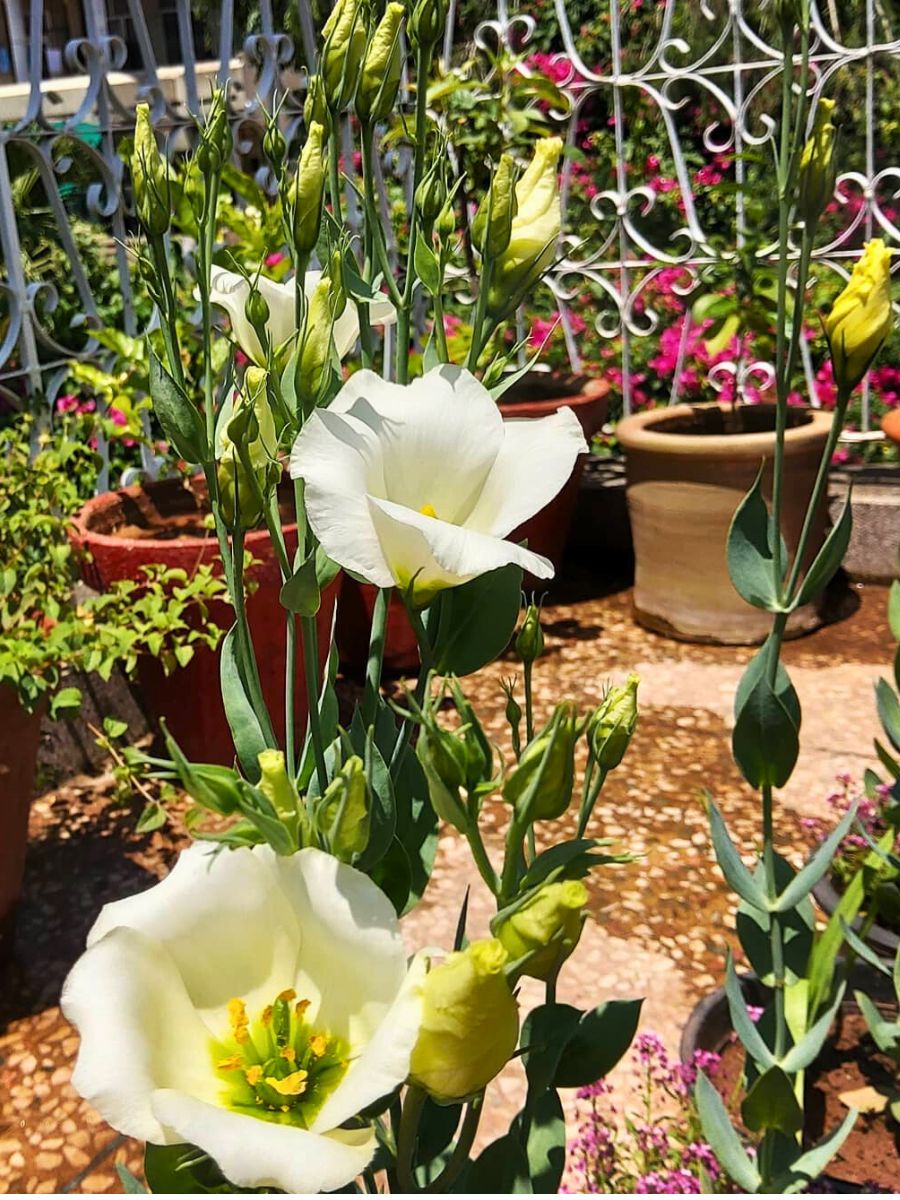
Photo by @ummeyusuf
By providing proper care, Lisianthus plants will reward gardeners with a stunning display of elegant blooms that can be enjoyed throughout the summer season.
Starting With Lisianthus Seeds
For those interested in growing their own Lisianthus flowers, starting with Lisianthus seeds can be a rewarding and cost-effective option. However, it's essential to keep in mind that Lisianthus seeds are tiny and can be challenging to handle. With patience and attention to detail, the process can be successful.
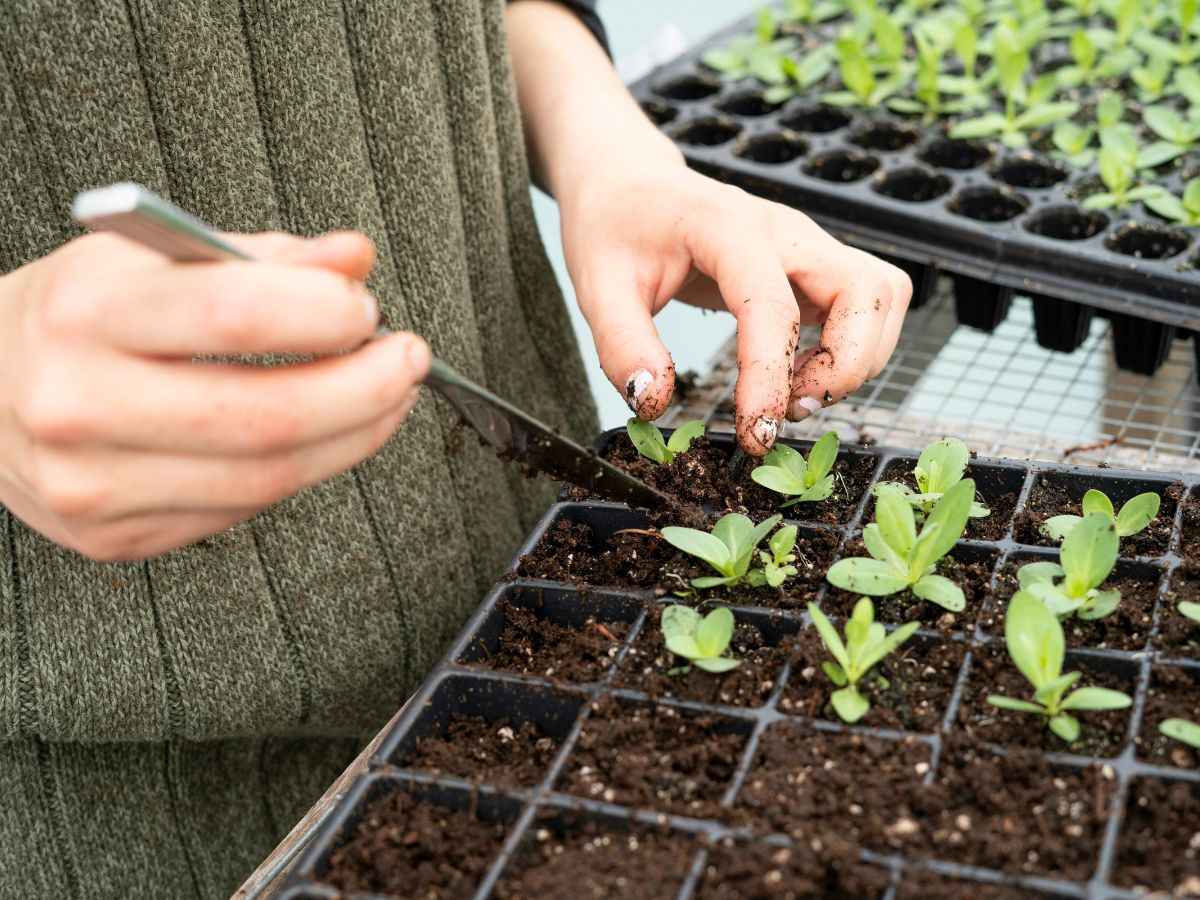
Photo by Zoe Schaeffer
Follow these steps to start Lisianthus from seed:
- Begin by sowing Lisianthus seeds indoors about 10 to 12 weeks before the last expected frost date. This allows enough time for the plants to establish themselves before being transplanted outdoors.
- Use a high-quality seed-starting mix and sow the seeds on the surface, as they require light for germination. Gently press the seeds into the soil, but do not cover them.
- Keep the soil consistently moist and maintain a temperature of 70–75°F (21–24°C) for optimal germination, which usually occurs within two to three weeks.
- Once seedlings have emerged and developed a few sets of true leaves, transplant them into individual pots to continue growing.
- Harden the seedlings by gradually exposing them to outdoor conditions for a week or two before transplanting them into the garden.
With proper care and attention, Lisianthus seeds will develop into stunning plants. These will, in turn, add a touch of elegance and sophistication to any garden or flower arrangement. Also, here's how to get the most out of the usually challenging Lisianthus.
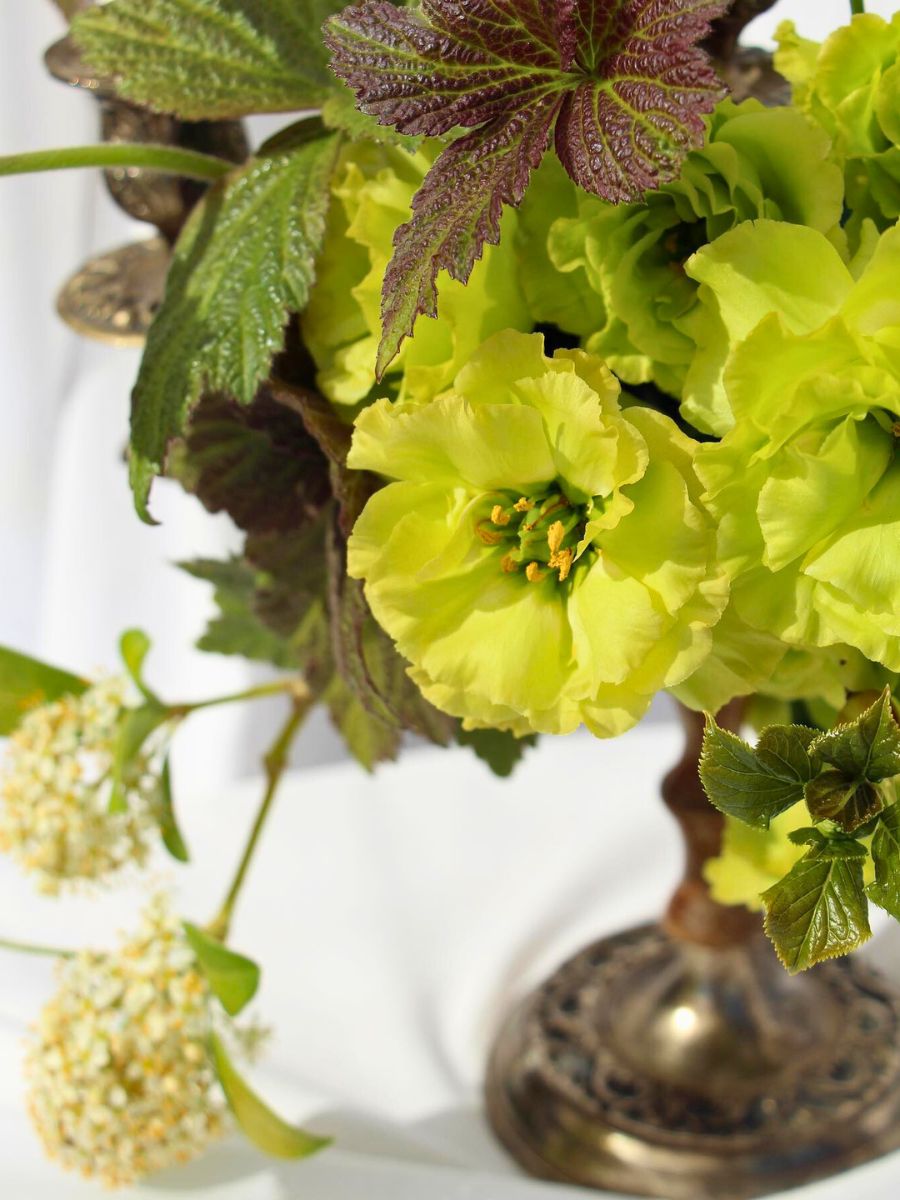
Photo by @montana_lisianthus
After all has been said and done, what remains clear is that the elegant and versatile Lisianthus flower is a valuable addition to any flower arrangement, garden, or indoor space. If you just understand the unique care requirements for both the cut flowers and plants, as well as learn how to grow them from seed, then, as a floral enthusiast, you can enjoy the beauty and charm of Lisianthus flowers for years to come.
Feature and header images by @montana_lisianthus

